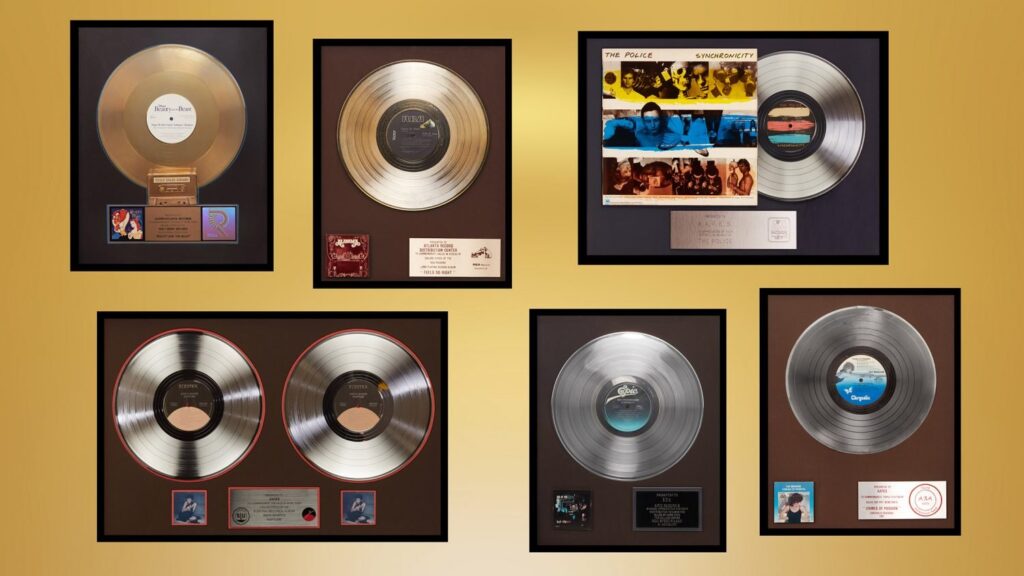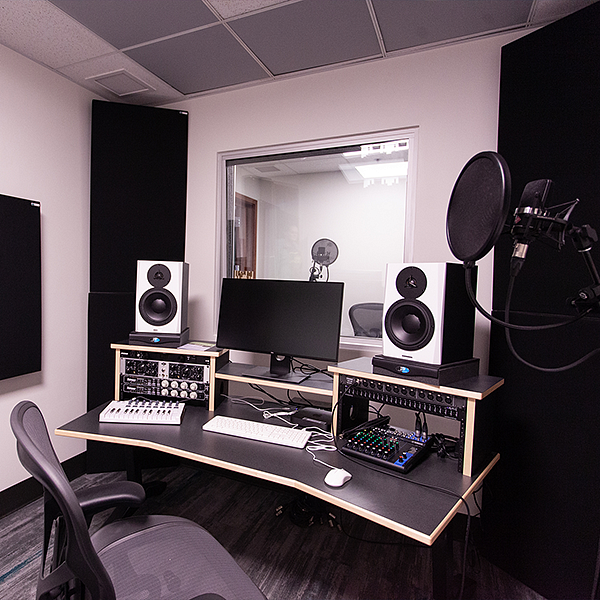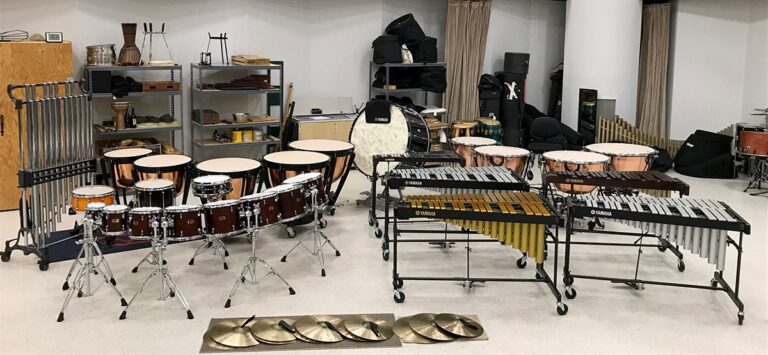Introduction
Have you ever dreamed of turning your love for music into a profitable venture? You’re not alone. In today’s digital age, there are more opportunities than ever for musicians to make money from their craft. Whether you’re a drummer, a gigging musician, or a creative entrepreneur, there’s a path to profit that suits your unique talents and ambitions. In this article, we’ll explore the various ways you can make money with your music, from live performances to leveraging technology. By the end, you’ll be equipped with practical tips and inspiring success stories to help you take the next step in your musical journey.
The Commitment Required to Succeed

Becoming a successful musician is far from an overnight achievement; it demands countless hours of hard work, dedication, and perseverance. Those who truly make it big understand that music cannot be treated as a mere “side project.” The path to success in the music industry involves rigorous practice, continuous learning, and often, significant sacrifices. Many of even the most famous artists were once a struggling musician. Musicians must hone their craft, develop their skills, and consistently create and perform new material. Additionally, they need to navigate the business side of music, including marketing themselves, building a fan base, and managing their finances. Only with unwavering commitment and an all-in approach can a musician reach the heights of stardom and build a sustainable career in the industry.
Skills and Attributes Needed to Succeed
To carve out a successful career in music, a musician must possess a blend of skills and attributes, including:
- Musical Proficiency: Mastery of one’s instrument or vocal technique is fundamental. This includes understanding music theory, being able to read sheet music, and having versatile playing or singing abilities.
- Creativity and Innovation: The ability to create original music and bring fresh ideas to the table is crucial. Musicians must be able to express themselves uniquely while also keeping up with musical trends.
- Discipline and Work Ethic: Regular practice and continuously refining one’s craft require discipline. A strong work ethic helps in maintaining momentum and pushing through challenging periods.
- Networking and Relationship Building: Building a network of contacts within the industry, including other musicians, producers, and industry professionals, is essential for opportunities and collaborations.
- Business Savvy: Understanding the business aspect of the music industry, such as contracts, royalties, marketing, and brand management, can greatly influence one’s success.
- Adaptability and Flexibility: The music industry is ever-evolving. Being able to adapt to new technologies, trends, and changes in the market can set a musician apart.
- Performance Skills: Captivating an audience through live performances is a vital part of a musician’s career. This includes stage presence, crowd interaction, and the ability to put on compelling shows.
- Emotional Resilience: The journey can be fraught with rejection, criticism, and tough competition. Resilience helps musicians to stay motivated and keep working towards their goals despite setbacks.
- Strong Communication: Effective communication skills aid in collaborating with other artists, pitching to potential sponsors, and engaging with many music fans.
- Marketing and Social Media Skills: Leveraging social media and digital platforms to promote music and engage with a global audience has become increasingly important.
Embracing the Joy of Music Regardless of Monetization
While the road to becoming a successful, financially stable musician is undoubtedly challenging, it’s crucial not to let these demands deter you from pursuing your passion for music. Making music should foremost be about the joy and fulfillment it brings. Whether you’re strumming a guitar on your porch, composing a new song, or jamming with friends, the intrinsic reward of creating and sharing music is invaluable. Many musicians find that their passion for music nourishes their soul and enhances their overall well-being. Even if the financial returns are not immediate, the emotional and psychological benefits can be profound. So, don’t allow the pursuit of monetization to overshadow your love for the art. Let your passion for music guide you, and remember that every great artist started somewhere, driven by their unwavering love for the craft.
Exploring the Gigging Scene

The Power of Live Performances
Live performances have always been a staple for musicians looking to make money from music. Whether you’re playing in small local music venues or headlining big events for die hard music fans, live gigs can provide a reliable source of income. But it’s not just about the money; live performances offer a chance to connect with your audience on a personal level, creating memorable experiences that can turn casual listeners into lifelong fans.
Finding the Right Venues
Choosing the right venues is crucial for maximizing your earnings and exposure. Start with local bars, clubs, and restaurants that regularly host live music. Build relationships with venue owners and event organizers to secure recurring gigs. Over time, as you build your reputation, you can aim for larger venues and festivals that offer higher pay and greater visibility.
Promoting Your Gigs
Promotion is key to the success of your live performances. Use social media platforms like Instagram, Facebook, and Twitter to announce upcoming gigs and engage with your audience. Create eye-catching posters and flyers, or even music videos to distribute both online and offline. Collaborate with other local musicians and bands to cross-promote each other’s gigs, expanding your reach and attracting a diverse audience.
Gigging Opportunities
The gigging scene offers a diverse range of opportunities for musicians to showcase their talent and earn a living. Different types of gigs can cater to various musical styles and audiences, providing a broad platform for exposure and income.
Booking Venues
Most musicians start their gigging journey by booking venues like bars, clubs, and restaurants that feature live music. These gigs are often stepping stones to larger opportunities and can help build a loyal local fan base. Venue gigs also provide a consistent source of income and valuable performance experience.
Weddings
Playing at weddings is a lucrative option for many musicians. Couples often seek live music to make their special day unforgettable, offering opportunities for both individual performers and bands. Wedding gigs typically come with higher payouts and can lead to future bookings through referrals.
Parties
Private parties, including birthdays and anniversaries, present another profitable gigging opportunity. These events often have a festive atmosphere, allowing musicians to engage directly with their audience. Playing at parties can also provide networking opportunities with potential clients for future events.
Studio Work
In addition to performing live music, musicians can find gigging opportunities in being a studio musician. This includes recording sessions for other artists, commercials, film scores, and more. Studio gigs not only provide income but also broaden a musician’s experience and portfolio, potentially leading to more substantial and varied work in the future.
Corporate Events
Corporate events are another avenue where musicians can earn significant income. Companies often hire live bands or solo musicians for product launches, gala dinners, and holiday parties. These gigs usually pay well and offer an opportunity to expand one’s network in the music business world.
Exploring these diverse gigging opportunities can help musicians build a sustainable career while enjoying varied and enriching experiences.
Running Your Own Private Lesson Studio

Setting Up Your Studio
A private lesson studio is a business where the teacher offers their expertise to teach music lessons. Start by choosing a dedicated space that is quiet, comfortable, and free from distractions. Whether it’s a room in your home, a rented space, or a specially designed studio, ensure it is equipped with all the necessary instruments, teaching materials, and technology to facilitate effective lessons. Soundproofing the space can also enhance the teaching and learning experience by minimizing external noise.
Defining Your Services
Consider the range of services you will offer. Will you focus on teaching beginners, intermediate students, or advanced musicians? Determine whether your lessons will cover a specific instrument, multiple instruments, vocal training, music theory, or composition. Offering specialized classes, such as preparation for music exams or auditions, can also attract a broader clientele.
Developing a structured curriculum is essential for providing consistent and high-quality lessons. A well-thought-out curriculum should include a balance of theory, technique, repertoire-building, and performance practice. Tailor your approach to meet the individual needs and goals of each student, ensuring they remain engaged and motivated.
Setting Your Rates
Setting competitive yet fair rates for your lessons is crucial. Research the pricing in your local area to ensure your rates are aligned with market standards. Consider offering different pricing packages, such as pay-per-lesson, monthly bundles, or discounted rates for longer-term commitments. Transparent communication about your rates and policies can help avoid misunderstandings and establish trust with your clients.
Marketing Your Studio
Effective marketing is key to attracting students to your private lesson studio. Utilize social media to showcase your expertise, student success stories, and studio environment. Create a professional website with detailed information about your services, rates, and contact details. Word of mouth is also a powerful tool, so encourage satisfied students to refer their friends and family.
Building strong, positive relationships with your students can significantly enhance their learning experience. Show genuine interest in their progress, provide constructive feedback, and celebrate their achievements. Creating a supportive and encouraging environment can inspire students to achieve their musical goals and continue their lessons long-term.
Managing Your Schedule
Efficiently managing your schedule ensures a smooth operation of your studio. Use scheduling software or apps to organize your lessons, send reminders to students, and handle cancellations or rescheduling. Maintaining a consistent timetable helps both you and your students plan ahead and commit to regular practice sessions.
Diving into Music Production

Creating and Selling Beats
If you have a knack for music production skills, selling beats and tracks online can be a lucrative venture. Platforms like BeatStars, Airbit, and Traktrain allow you to upload your beats and sell them to music artists and producers worldwide. Make sure your beats stand out by focusing on quality production and unique sounds that cater to current market trends.
Licensing Your Music
Music licensing is another profitable avenue for producers. By licensing your tracks for use in commercials, films, TV shows, and video games, you can earn royalties and gain significant exposure. Websites like AudioJungle, Pond5, and Musicbed make it easy to upload your music and connect with potential clients looking for high-quality tracks. There are also ways to collect public performance royalties if you are the composer or record label.
Building a Portfolio
A strong portfolio is essential for attracting buyers and clients. Showcase your best work on your website and social media profiles, and consider offering free samples or discounted rates for your first few clients to build credibility. Regularly update your portfolio with new tracks to demonstrate your growth and versatility as a producer.
Composing Music
Composing music is an art that combines creativity, technical skill, and emotional expression. Whether you’re writing for a full orchestra, a small jazz ensemble, or just yourself, the process of creating new music can be incredibly rewarding. It requires a deep understanding of musical theory, including harmony, melody, and rhythm. Thoughtful composition considers the emotional journey of the listener, using dynamics, tempo changes, and thematic development to convey a narrative or evoke feelings.
The Importance of Branding and Marketing

Developing Your Brand
In the competitive music industry, a strong personal brand can set you apart from the rest. Your brand is more than just your music; it’s your image, message, and unique selling proposition. Define what makes you unique as an artist and consistently communicate that through your visuals, social media profiles, and public interactions.
Social Media Strategies
Social media is a powerful tool for musicians to increase their reach and opportunities. Regularly post engaging content on a platform like a YouTube channel that resonates with your audience, such as behind-the-scenes footage, live performances, and personal stories. Use features like Instagram Stories, IGTV, and Facebook Live to interact with your fans in real-time and build a loyal community.
Building a Website
Building your own website serves as your online hub where fans, collaborators, and industry professionals can learn more about you and your music. Include essential elements like a bio, discography, tour dates, and a contact form. Regularly update your site with news, blog posts, and exclusive content to keep visitors engaged and coming back for more.
Merchandise Sales
Selling merchandise is an excellent way to generate additional income and promote your brand. Consider creating a range of products that feature your logo, album artwork, or unique designs that resonate with your audience. Popular items for merch sales include t-shirts, hoodies, hats, posters, and accessories. Partner with a reliable supplier or print-on-demand service to ensure high-quality products and efficient fulfillment.
Navigating Record Labels

Understanding Record Deals
Signing with a record label can be a significant milestone in a musician’s career, offering both opportunities and challenges. A record deal often provides funding for recording, marketing, and distribution, which can elevate an artist’s reach and professional standing. However, it’s crucial to understand the terms of the contract, including royalty rates, advance payments, and recoupment policies. Many artists seek legal advice to ensure they fully comprehend the implications of the deal.
Types of Record Labels
There are various types of record labels, each with its own advantages and disadvantages. Major music companies like Universal Music Group, Sony Music Entertainment, and Warner Music Group have vast resources and extensive networks, which can offer extensive promotion and higher visibility. On the other hand, independent labels may provide more creative freedom and cater to niche audiences. Understanding the differences can help musicians choose the right fit for their artistic and career goals.
How to Get Noticed by a Record Label
Getting a record label’s attention often requires a combination of talent, hard work, and strategic networking. Building a strong online presence, consistently releasing high-quality music, and engaging with your audience are key factors. Attending industry events, engaging with industry professionals, and submitting demos to label representatives can also improve your chances. Showcasing a loyal fan base and solid streaming numbers can further demonstrate your market potential.
Pros and Cons of Being Signed
Being signed to a music label brings both advantages and disadvantages. On the positive side, a label can provide financial support, professional expertise, and industry connections, all of which can propel an artist to new heights. However, signing a deal also often involves some loss of artistic control, and the financial benefits may take time to materialize due to the label recouping its investment. Independent artists must weigh these factors carefully when considering record deals.
Independent vs. Major Labels
Deciding between an independent and a major label depends on an artist’s personal and professional priorities. Major labels offer significant resources for marketing and promotion but may impose stricter creative and contractual constraints. Conversely, independent labels often allow more artistic freedom and a closer relationship with label executives but may have limited resources. Evaluating one’s long-term goals and immediate needs can aid in making the right decision for a successful music career.
Technology and Music Monetization

Streaming Platforms
Music streaming services like Spotify, Apple Music, YouTube music, and Tidal have revolutionized music consumption. Being able to sell music online can open numerous opportunities to make money; whether by digital downloads or streaming music. Utilize tools like Spotify for musical Artists to gain insights into your listener demographics and optimize your release strategies.
Patreon and Crowdfunding
Platforms like Patreon and Kickstarter allow musicians to monetize their fan base directly like an online store. By offering exclusive content, merchandise, and experiences, you can encourage fans to support you financially on a recurring basis. Crowdfunding campaigns can also help fund specific projects, such as recording an album or going on tour, while strengthening the bond between you and your supporters.
YouTube Videos
YouTube is a vital platform for musicians to showcase their talent and engage with a global audience. By creating your own YouTube channel, you can upload a variety of content, including music videos, live performances, vlogs, and tutorials. High-quality music videos can help visualize your songs and attract more views and subscribers. Regular uploads and a consistent posting schedule can keep your audience engaged and encourage them to return for more content.
Additionally, YouTube’s Community tab allows for further interaction with your fans through polls, updates, and direct messages. Engaging with your audience in the comments section and responding to their feedback can foster a sense of community and loyalty. Utilizing YouTube’s analytics tools can provide insights into viewer demographics, watch time, and engagement, helping you tailor your content strategy to better meet your audience’s preferences. Collaborating with other YouTubers or musicians can also expand your reach and introduce your music to new listeners.
Online Music Lessons
Sharing your expertise through online music lessons can be a rewarding income stream. Platforms like Udemy, Teachable, and Skillshare enable you to create and sell courses on various musical topics, from instrument mastery to songwriting techniques. You can also offer one-on-one lessons through video conferencing tools, providing personalized guidance to students worldwide.
Success Tips

Diversifying Income Streams
Successful musicians often diversify their income streams to ensure financial stability. For example, besides performing and producing music, they might teach, write for music publications, or create sample packs for other producers. Diversification not only increases income but also provides opportunities for growth and learning.
Networking and Collaboration
Building a strong network is crucial in the music industry. Attend industry events, join online communities, and collaborate with other musicians, producers, and influencers. Networking opens doors to new opportunities, from gig bookings to collaborative projects that can boost your visibility and credibility.
Staying Adaptable
The music industry is constantly evolving, and staying adaptable is key to long-term success. Keep abreast of industry trends, new technologies, and emerging platforms. Be open to experimenting with different genres, marketing strategies, and revenue streams to stay relevant and competitive.
Conclusion
Being able to earn money as a musician is more achievable than ever, thanks to the myriad opportunities available in the digital age. Whether you’re rocking the stage, producing beats, or leveraging technology, there are countless ways to turn your passion into profit. Remember, the key lies in diversifying your income streams, building a strong personal brand, and staying adaptable in an ever-changing industry.
Why not take the next step? Share your own experiences and strategies for making money with music in the comments below. Let’s create a supportive community where we all can thrive!




